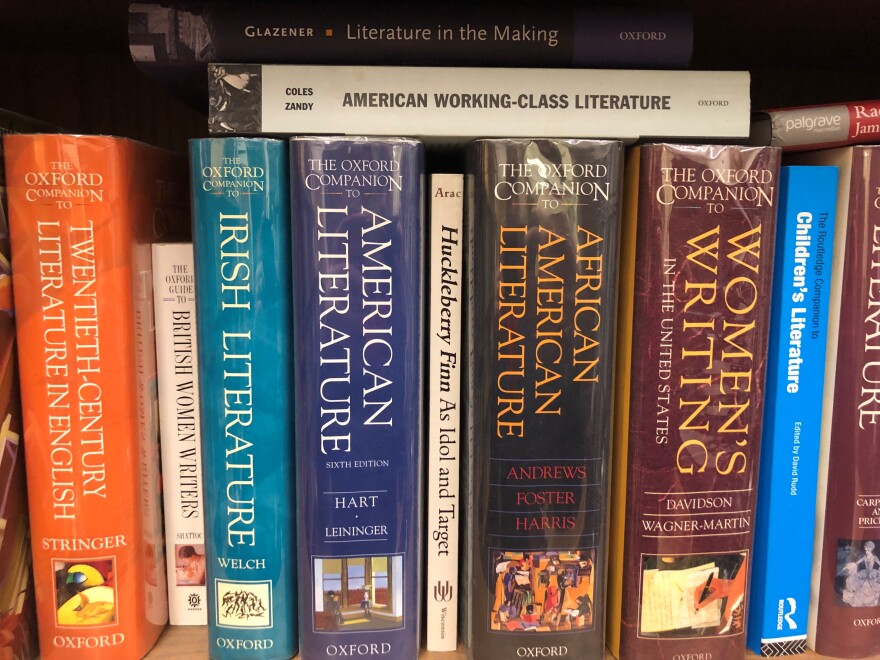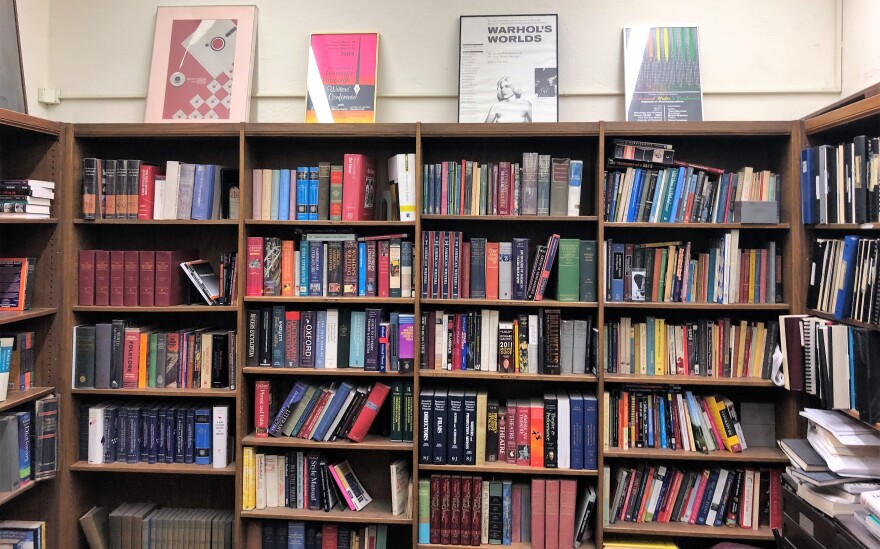Thousands of films, novels and songs entered the public domain at the start of the new year. It’s the first time in decades that titles like Charlie Chaplin’s silent movie “The Pilgrim” and Virginia Woolf’s “Jacob’s Room,” were made available for anyone to reproduce or use for their own creative purposes.
This is exciting for educators and creators, according to Jennifer Jenkins, director for the Center for the Study of Public Domain at Duke University. These people draw from the public domain for inspiration and content, she said, and it promotes creativity.
“We all build on the works that came before us,” Jenkins said. “We all build off of the public domain and brilliant artists do so brilliantly.”
The public domain is the huge library of published works available to ordinary people. The author and his or her estate no longer own the rights to the works. Copyright is a creator’s legal protection that says anyone who wants to reproduce work must get permission and often, pay a fee.
Copyright origins
The first copyright law in the United States was enacted in 1790. The term for authors was 14 years with the option to renew for another 14 years. In 1831, the term was extended to 28 years with the same 14-year renewal possibility. That was updated in 1909, and again in 1976, bringing the term to the life of the author plus 50 years after his or her death.
“The copyright term started expanding and the public domain started shrinking considerably,” Jenkins said.

The largest extension was passed in 1998. Now, the term is the life of the author plus 70 years and 95 years for corporate works.
“Nothing created in our lifetimes is going to go into the public domain unless you live an amazingly long time,” Jenkins said.
The Copyright Term Extension Act of 1998 meant nothing would enter the public domain between 1998 and 2018. It has been referred to as the “Mickey Mouse Protection Act.” The inspiration for Mickey Mouse, a character named Steamboat Willy, was first animated in 1928 and many say Walt Disney Company officials have been finding ways to push back his entrance into the public domain for decades. Steamboat Willy will enter the public domain in 2024.
Long terms, lost impact
Extensive copyright terms can be problematic and counter to the law’s original purpose. By the time the copyright expires and a work enters the public domain, the owners of the creation often have little to do with the original items.
“The rights end up with great-grandchildren or agencies,” said Daniel Nazier with the digital rights group, Electronic Freedom Frontier. “Copyright terms being so long creates this really negative dynamic.”
By the time something enters the public domain, it’s often no longer commercially viable. Because it’s been under copyright for so long, Nazer said, people might have shied away from engaging with the work for fear of retribution from the rights holder.
“Once the specter of copyright risks is raised, it’s much less likely that things become available and shared,” Nazer said. “The certainty that the public domain gives us makes it easier to preserve and share the culture.”
Sometimes copyright stifles creative reinvention of classics, Jenkins said. She recalled the case of Alice Randall, author of “The Wind Done Gone,” a novel that provides an alternative account of the story “Gone With the Wind.” The estate of author Margaret Mitchell sued Randall for copyright infringement and banned advertising of her book. To get the book published Jenkins reportedly had to rely on the fair use doctrine, which states some elements of the original story could be included.
We think there's cultural, political, social value in the democratizing of access to literature and that goes all the way from our classrooms to every corner of the world that the internet reaches. - Gayle Rogers, Associate Chair of the University of Pittsburgh's Department of English.
“‘The Wind Done Gone’ sought to remedy the depiction of slavery and give life and voice to the African-American characters in ‘Gone With the Wind,’” Jenkins said. “That’s an example of works from a really long time ago where the successors and interests have objected...for powerful, creative reuse of those works.”
New engagement in the digital age
When items do become public, they can be reimagined. These real-life applications are useful to Gayle Rogers, associate chair of University of Pittsburgh’s Department of English. When works enter the public domain, his students engage with classics in a new way. They can, for example, take a copy of Agatha Christie’s “The Murder on the Links,” which entered the public domain this year, and create a digital annotation that explains motifs, allusions, and character development.
“That’s a much more hands-on way for students to be able to interact with the text, as opposed to the old model of passive consumption,” Rogers said.
When items are in the public domain, they’re cheap and easy to access. With students increasingly using their tablets and laptops to download anthologies and textbooks, public domain works have become even more significant, he said.
“We think there's cultural-political social value in the democratizing of access to literature and that goes all the way from our classrooms to every corner of the world that the Internet reaches,” Rogers said.
This year, one significant local contribution is from writer Willa Cather, best known for her novels about frontier life. Cather lived and worked in Pittsburgh for ten years and during that time, she wrote a collection called “April Twilights and Other Poems.” It was published in 1923 and is now a part of the public domain.





